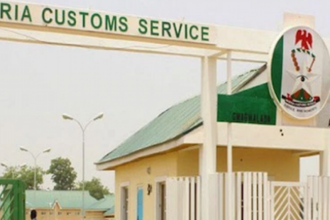The Senate has launched a probe into the operations of Ponzi schemes and fraudulent online investment platforms, following a resolution passed during plenary on Wednesday.
This move comes in response to the recent collapse of the Crypto Bullion Exchange, which reportedly defrauded Nigerian investors of over N1.3 trillion.
Four Senate committees—Capital Market and Institutions; Banking, Insurance and Other Financial Institutions; Anti-Corruption and Financial Crimes; and ICT/Cybersecurity—have been directed to conduct a thorough investigation, including public hearings, within four weeks.
The resolution followed a motion jointly sponsored by Senators Mukhail Adetokunbo Abiru (Lagos East) and Osita Izunaso (Imo West), who raised alarm over the growing wave of fraudulent investment schemes across the country and the financial ruin they have inflicted on citizens.
The Senate expressed concern over the “rapid proliferation and alarming rise of unregulated and fraudulent investment schemes—commonly known as Ponzi or pyramid schemes—such as MMM Nigeria in 2016 and MBA Forex in 2020, among others, which have repeatedly defrauded millions of Nigerians, causing severe financial hardship, and in some cases, leading to depression, family breakdowns, and even suicide.”
The motion referenced CBEX as a recent example, describing it as a digital investment platform that enticed millions of Nigerians with the promise of unrealistic profits before crashing and disappearing with investors’ funds. It noted that CBEX’s collapse was part of a wider pattern of online scams that exploit technology, social media, celebrity endorsements, and fake testimonials to lure victims.
Leading the debate, Senator Abiru questioned how a platform like CBEX could operate so openly without oversight.
“The lack of coordinated oversight, real-time monitoring, and strict enforcement by relevant agencies has created an enabling environment for these schemes to flourish. This erodes public trust in legitimate financial institutions and poses systemic risks to the economy,” he said.
He further criticized regulatory agencies, including the Central Bank of Nigeria (CBN), Securities and Exchange Commission (SEC), Nigerian Financial Intelligence Unit (NFIU), and the Economic and Financial Crimes Commission (EFCC), for failing to act.
Senate Whip, Senator Mohammed Monguno (Borno North), added that Ponzi scheme operators prey on the vulnerable, often driving their victims into emotional and financial ruin. He called for stronger legislative measures to combat the threat.
Senator Sadiq Suleiman (Kwara) stressed the importance of proactive oversight to protect the public.
“We must continually monitor financial schemes to protect citizens. Our agencies must rise to the occasion and carry out their regulatory functions,” he said.
Senator Solomon Olamilekan (Ogun West), Chairman of the Senate Committee on Appropriations, expressed concern about the growing number of young Nigerians drawn to such platforms.
“I wonder how this monumental fraud happened under the watch of the CBN. We will summon the CBN to explain what regulations were in place to prevent such scams. Beyond Ponzi schemes, there are many other online platforms defrauding Nigerians. Are we saying Nigeria is so porous that we lose trillions of naira just like that?” he queried.
Senator Abdul Ningi (Bauchi Central) described the motion as “extraordinary,” requiring a response of equal magnitude.
“We have laws, but Ponzi schemes keep evolving. Who are the people behind them, and why have there been no arrests?” he asked, sharing stories of constituents who lost their small investments of N5,000, N10,000, and N20,000 to fraudulent platforms.
Senate President Godswill Akpabio recalled the infamous Umanah Umanah scheme of the 1990s in Port Harcourt, which collapsed after deceiving the public with promises of rapid wealth.
“It was a terrible nightmare. Many people lost their savings,” he said.
Akpabio directed that the investigative process include zonal public hearings and be thorough enough to bring perpetrators to justice. He also called for a nationwide public awareness campaign—featuring road walks and sensitization activities—to educate Nigerians on the dangers of Ponzi schemes.











